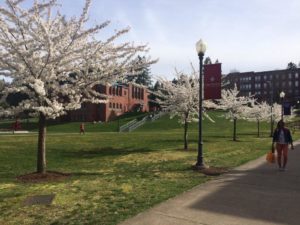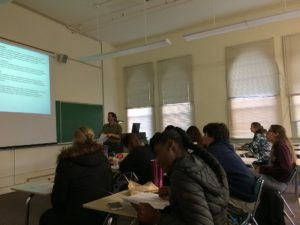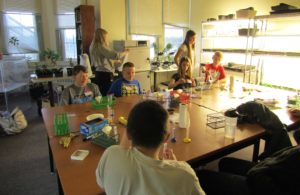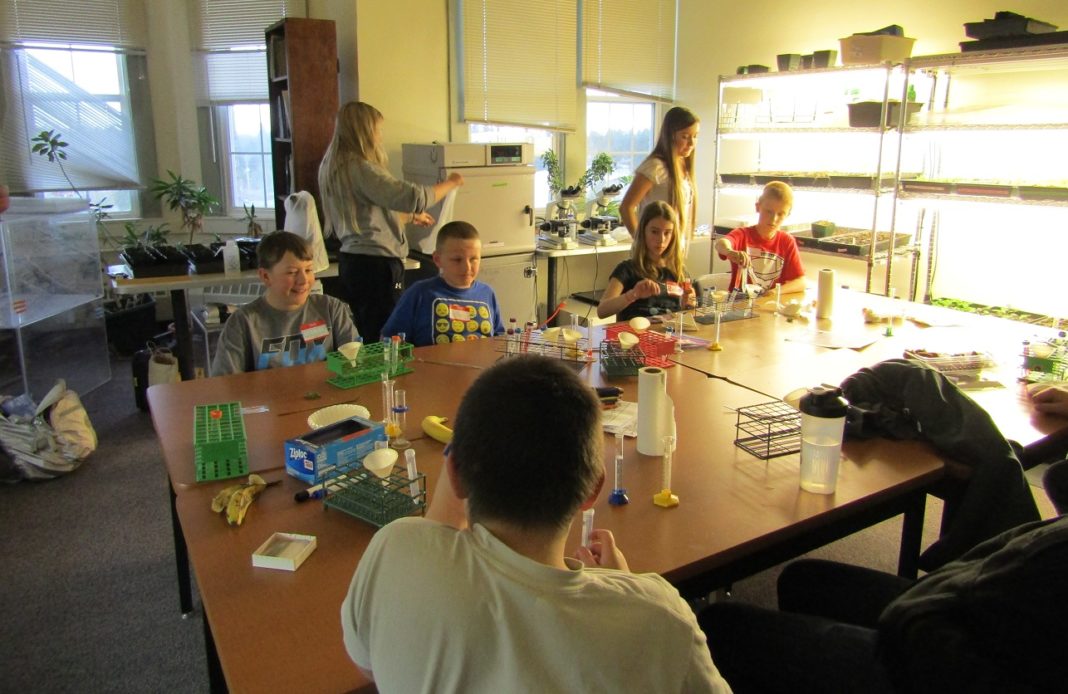Any new beginning is a labor of love. When that start is a fledgling field of study at an esteemed local university, success comes from tirelessly dedicated faculty and staff, eager students, and community-wide partnerships. Thanks to all three, the Saint Martin’s University Environmental Studies major is truly thriving.

According to the U.S. Bureau of Labor Statistics, environmental scientists and specialists “use their knowledge of the natural sciences to protect the environment and human health. They may clean up polluted areas, advise policymakers, or work with industry to reduce waste [and] employment…is projected to grow 11 percent from 2016 to 2026, faster than the average for all occupations. Heightened public interest in the hazards facing the environment, as well as increasing demands placed on the environment by population growth, are expected to spur demand.”
Saint Martin’s administrators and staff decided to take the plunge and the program is now up and running. Dr. Aaron Coby, associate dean of the College of Arts and Sciences and associate professor of biology, explains that “It was about two years from the initial meeting to the official start of the program. A lot of people were involved and lots of discussions were had about what we wanted it to look like. It needed to have a connection to the University’s Benedictine tradition and we wanted to offer both a science and social policy option.”
He and other professors purposefully design the program to make sure it fit well with their current curriculum. “That was one of the major pushes to make it happen, he adds. “We already have most of the coursework in place, so we just needed to structure it into a logical program of study.”
Students can choose between either a Bachelor of Science or Bachelor of Arts, and some coursework varies between the two. “Since the program is interdisciplinary in nature it draws faculty from many different areas including sociology, business, economics, chemistry, biology, political science, English, communications, mathematics, etc.,” says Coby. “This means that students will have the opportunity to create academic plans that are tuned into their interests.”

One hands-on way for students to learn more about relevant career paths came at a recent Environmental Studies Open House on April 26, 2018. “In the near future, we would like to see our connections and collaborations with local community organizations grow,” says Coby, “which is why events like this one are important.” Many organizations are looking for graduates who understand the science and policy associated with environmental issues. But they also want graduates with the skills to communicate effectively, think critically, write effectively and work well with others.”
One of the organizations in attendance was the LOTT Clean Water Alliance. “The LOTT Clean Water Alliance is excited to serve as a community partner and support this unique program,” says Amber Smith, their education program director. “It is vital that future environmental science professionals understand the importance and complexity of managing and protecting water resources. Students visiting our facilities will see firsthand how local wastewater is treated, how our nutrient removal process helps protect water quality in Budd Inlet, and how beneficial resources are recovered from our processes. It will also be an opportunity to learn about the range of clean water careers available to them.”
Kerensa Mabwa, cultivation manager at GRuB, is proud to be involved. “Our community and region benefit from college level environmental programs in a myriad of ways: Environmental studies programs help evolve students’ understanding of humanity’s innate relationship with the environment and how the natural world works,” she explains. “Students become aware of the complex natural systems that intersect with areas such as science, policy, conservation, urban and indigenous communities as well as health, food systems and economies. Graduates can ultimately create change as systems thinkers, experiencing our environment as both teacher and mirror and preserving the diverse elements of the Pacific Northwest and beyond.”
Coby and his fellow Environmental Studies team at SMU hope that events like this keep momentum strong. “Already students are coming together to form a Sustainability Club. I think we will see students taking the lead with the program and building community with things like service projects and research collaborations.”

And students are already making their mark when it comes to raising awareness of environmental issues. Just last month SMU senior Abigail Limov was instrumental in bringing the Wild and Scenic Film Festival, which focused on nature and environmental concerns, to the Saint Martin’s campus.
After graduation, SMU Environmental Studies grads can look forward to an array of career options. Coby says job positions include conservation/sustainability groups, environmental planning, city program planning, environmental research and environmental engineering, to name a few. “Our world’s issues with food, water, resources and climate are not going away any time soon,” he continues. “In fact, we are going to need more people focused on these issues, and thinking about them from many different angles, if we hope to make real progress.”
Interested prospective students can learn more about the program by requesting information or scheduling a campus visit. Questions about the Environmental Studies program can be directed to the College of Arts and Sciences at 360-438-4564 or to Dr. Aaron Coby at ACoby@stmartin.edu.
Sponsored



















































